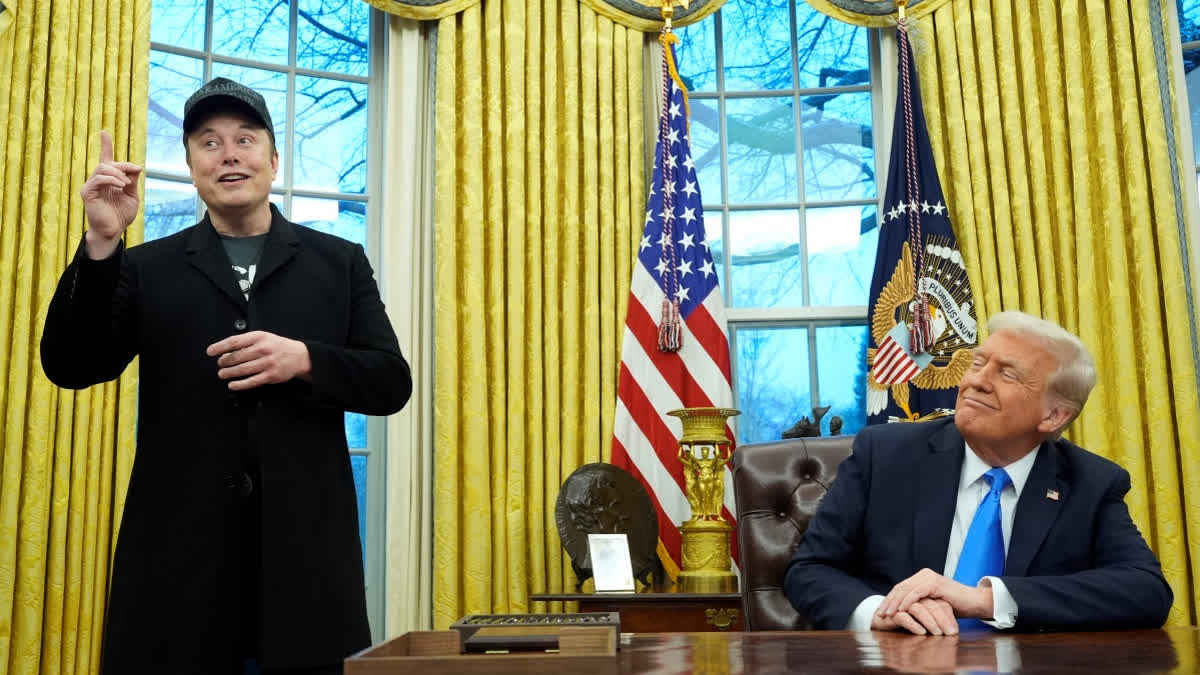New Delhi:The cat is out of the bag. And how! In a dramatic policy shift, the second Donald Trump administration’s newly-formed Department of Government Efficiency (DOGE) has axed $21 million in funding meant to bolster voter turnout in India’s elections.
The move raises fresh questions about how—and why—the United States spends taxpayer dollars to influence democratic participation abroad. In a post on its X handle, the DOGE stated that it was cancelling the allocation of $21 million for “voter turnout in India”.
The DOGE, officially the US DOGE Service Temporary Organisation, is an initiative of the second Trump administration led by tech billionaire Elon Musk. Despite its name, DOGE is not a Cabinet-level department of the US government, but a temporary contracted government organisation under the United States DOGE Service, formerly known as the United States Digital Service.
Its purpose is to carry out Trump’s agenda of federal spending cuts and deregulation, and, according to the order that established it, to “modernise federal technology and software to maximise governmental efficiency and productivity”.
In its post, the DOGE announced the following cuts:
- $10 million for “Mozambique voluntary medical male circumcision”
- $9.7 million for UC Berkeley to develop “a cohort of Cambodian youth with enterprise driven skills”
- $2.3 million for “strengthening independent voices in Cambodia”
- $32 million to the Prague Civil Society Centre
- $40 million for “gender equality and women empowerment hub”
- $14 million for “improving public procurement” in Serbia
- $486 million to the “Consortium for Elections and Political Process Strengthening”,” including $22 million for “inclusive and participatory political process” in Moldova and $21M for voter turnout in India
- $29 million to “strengthening political landscape in Bangladesh”
- $20 million for “fiscal federalism” in Nepal
- $19 million for “biodiversity conversation” in Nepal
- $1.5 million for “voter confidence” in Liberia
- $14 million for “social cohesion” in Mali
- $2.5 million for “inclusive democracies in Southern Africa”
- $47 million for “improving learning outcomes in Asia”
- $2 million to develop “sustainable recycling models” to “increase socio-economic cohesion among marginalised communities of Kosovo Roma, Ashkali, and Egypt”.
$21 million allocation for ensuring voter turnout in India?
What is the Consortium for Elections and Political Process Strengthening or CEPPS through which the money was funnelled? It is composed of non-profit, organisations “and has the stated aim of advancing and supporting democratic practices and institutions around the globe”, according to a brief note on Wikipedia.
Established in 1995, the note states, CEPPS is a combination of the International Foundation for Electoral Systems, the International Republican Institute and the National Democratic Institute. Though the CEPPS ostensibly had a website, when ETV Bharat tried to access it at the time of filing this report, the message reflected was: “The CEPPS website is currently unavailable.”
